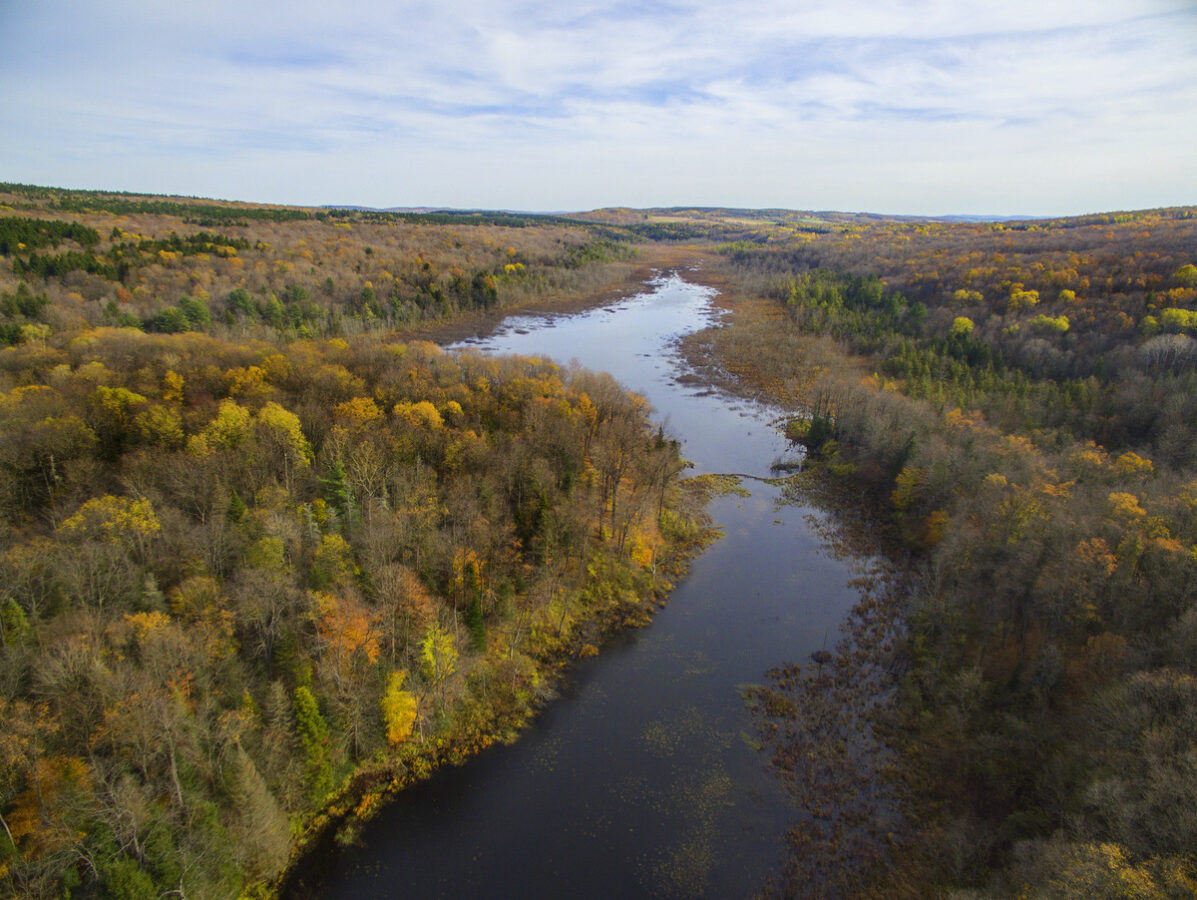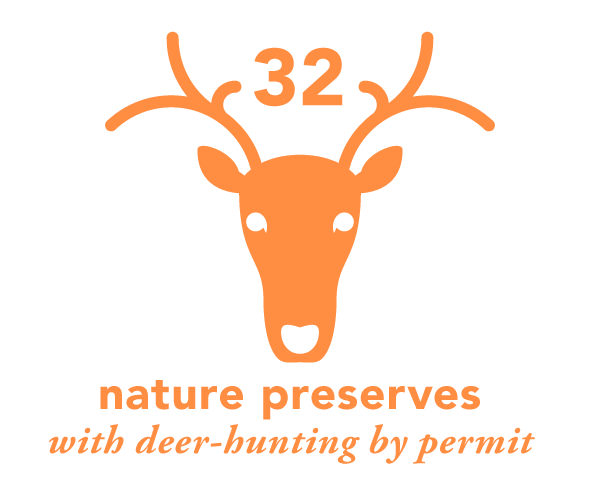The Finger Lakes Land Trust (FLLT) purchased 218 acres adjacent to Bear Swamp State Forest in the town of Sempronius in Cayuga County.
The property encompasses wetlands, upland forests, and 1,755 feet of frontage on Bear Swamp Creek, the largest tributary to Skaneateles Lake, the unfiltered drinking water supply for the city of Syracuse.

Photo: Bill Hecht
The FLLT intends to transfer a portion of the newly acquired property, approximately 141 acres, to New York State as an addition to Bear Swamp State Forest. This key property will connect the eastern portion of the forest with 102 acres acquired by the FLLT in 2021, which will also join the state’s land holdings in this area.
The remaining 77 acres are primarily agricultural land and will be conserved through the use of a perpetual conservation easement and sold to a private buyer subject to the terms of the easement. Proceeds from the sale will be used to replenish FLLT’s Opportunity Fund, a dedicated account created by the organization to make time-sensitive acquisitions possible.
Protection of these properties will safeguard water quality in Skaneateles Lake, protect wildlife habitat, and provide additional recreational opportunities. In addition to filtering water quality in the creek as it wends its way northward to the lake, Bear Swamp State Forest hosts a popular network of recreational trails—over 15 miles of multi-use trails and miles of quiet, unpaved roads.
This is the organization’s ninth conservation project in the vicinity of Bear Swamp, which is identified as a priority project within New York State’s Open Space Plan. It is also part of an Audubon-designated Important Bird Area and features extensive pristine wetlands and rare flora. Other protected lands in the area include Carpenter Falls State Unique Area and the FLLT’s Bahar Nature Preserve.
Conservation easements are voluntary legal agreements that permanently limit future land use in order to protect the land’s conservation value. Lands subject to conservation easements remain in private ownership, on local tax rolls, and available for traditional uses such as farming and hunting.

